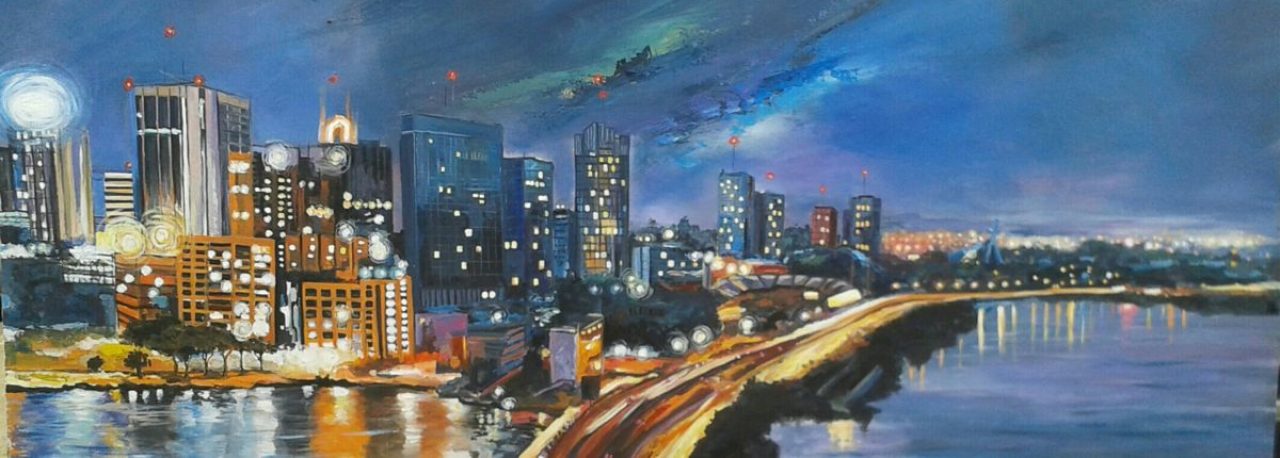Corruption is a subject that unfortunately is relevant to – but not limited to – people doing business in Africa. Myself, I have actually not yet encountered any corruption in my real estate venture in the Ivory Coast, but I’d like to share my other experiences of corruption from longer and shorter visits/stays to West Africa over the last 12 years:
1. Roadblocks in Abidjan
Almost all petty corruption I’ve encountered in Africa come from roadblocks in Abidjan in 2003 or 2004. Felt like there were roadblocks every 800 meters or so at the time. For most of them, it was possible to get through without paying anything.
Once, a friend of mine, when asked for a bribe at a roadblock responded “That is corruption, and that’s not good for your country!” (in French) and possibly due to the surprise effect our car was actually let through. He tried it again at another checkpoint, but a quite tough-looking military-dressed guy manning the roadblock just responded Money! (in English). Given that some of the others started aiming their kalashnikovs at the car, we concluded that paying 1,000 CFA Francs was probably a wise move.
On other occasions the exchange with the guys at the roadblock was more subtle. We said “We’re in a hurry”, and they responded “We’re thirsty!”. We handed over 1,000 CFA Francs and told them to enjoy their beers.
2. Volvo bus
Senegal had since the early to mid 90s been scheduled to receive Volvo buses for its public transport in Dakar as part of Sweden’s development aid efforts. However, it took over a decade for the buses to actually be delivered.
In 2005, I was at a meeting with the Swedish ambassador to Senegal, and she explained that Senegalese government officials serving both Abdou Diouf’s and Abdoulaye Wade’s governments simply refused to let the deal happen unless it included a kickback for themselves. As Sweden has a pretty strict no-corruption policy, the whole issue stayed in a stalemate lasting for years. The ambassador said that at the end she had to call a couple of Ministers and literally yell at them over the phone.

3. An Ivorian Municipality
I have a good friend who has worked as a tax officer at one of the municipalities of Abidjan, heading a team of nine tax collectors. His job was to charge tax for shops in the municipality with a surface area below a certain threshold. Upon starting the job, he discovered that his predecessor (who had been fired due to corruption) had made a deal with many shops allowing them to pay a too low tax amount in return for a kickback. As my friend has strong integrity (group 3 in the The Issue of Trust post) he attempted to charge the correct higher tax amount without asking for a kickback, and this resulted in:
-Him getting the reputation of being the severe tax officer, and minor demonstrations erupting blocking his way when he tried to visit shops in the municipality.
-His own tax collectors tipping off shop-owners warning them of when my friend would make a visit.
-His superior asking for a cut of the kickbacks my friend was supposed to receive, and not being at all happy (in a diplomatic and subtle way) when explained that no kick-backs were collected.
-Tax collection in my friend’s unit increasing dramatically compared to previously.
-My friend ultimately getting outmaneuvered from any position of actual tax collecting power while still keeping his title and salary.
My friend explained that you risk losing your job both if you are too blatantly corrupt, and if you are too honest. He estimated that about 50% of the money collected by the Municipality went directly into the pockets of public officials.
I visited my friend’s office several times and it was an interesting and eye-opening experience. It had a very used wooden desk, two chairs, a computer from the early 90s, and two cupboards with mostly empty shelves. The atmosphere was very open and I’d say friendly (at least if you are unaware of the underlying tensions and conflicts as I was at the time). Members of the public kept coming in all the time and most of my friend’s time appeared to be spent dealing with their issues which often were not related to his core functions.
I even co-discovered some corruption myself. My friend had this aid who – among other things – was responsible for a yellow form where the taxpayers put one stamp for each month to show that the tax has been paid. Taxpayers have to buy the yellow form which lasts for a year for 2,000 F CFA. In the office there should have been 500 unused yellow forms, and I counted them, but there were only 234 of them. My friend and I drew the conclusion that the aid had been selling these on his own.
4. It’s Our Turn to Eat
This is very indirect, but Michela Wrong’s book It’s Our Turn to Eat about corruption in Kenya after Mwai Kibaki came to power is so brilliant that I have to mention it. It shows how grand corruption works from the inside and tells the story of one honest Kenyan in a high position who tries to fight it. I haven’t read anything quite like it about corruption.
Ok, I got two more, but I’ll save them for some other time!


Pingback: He actually means it « Hotel Ivory